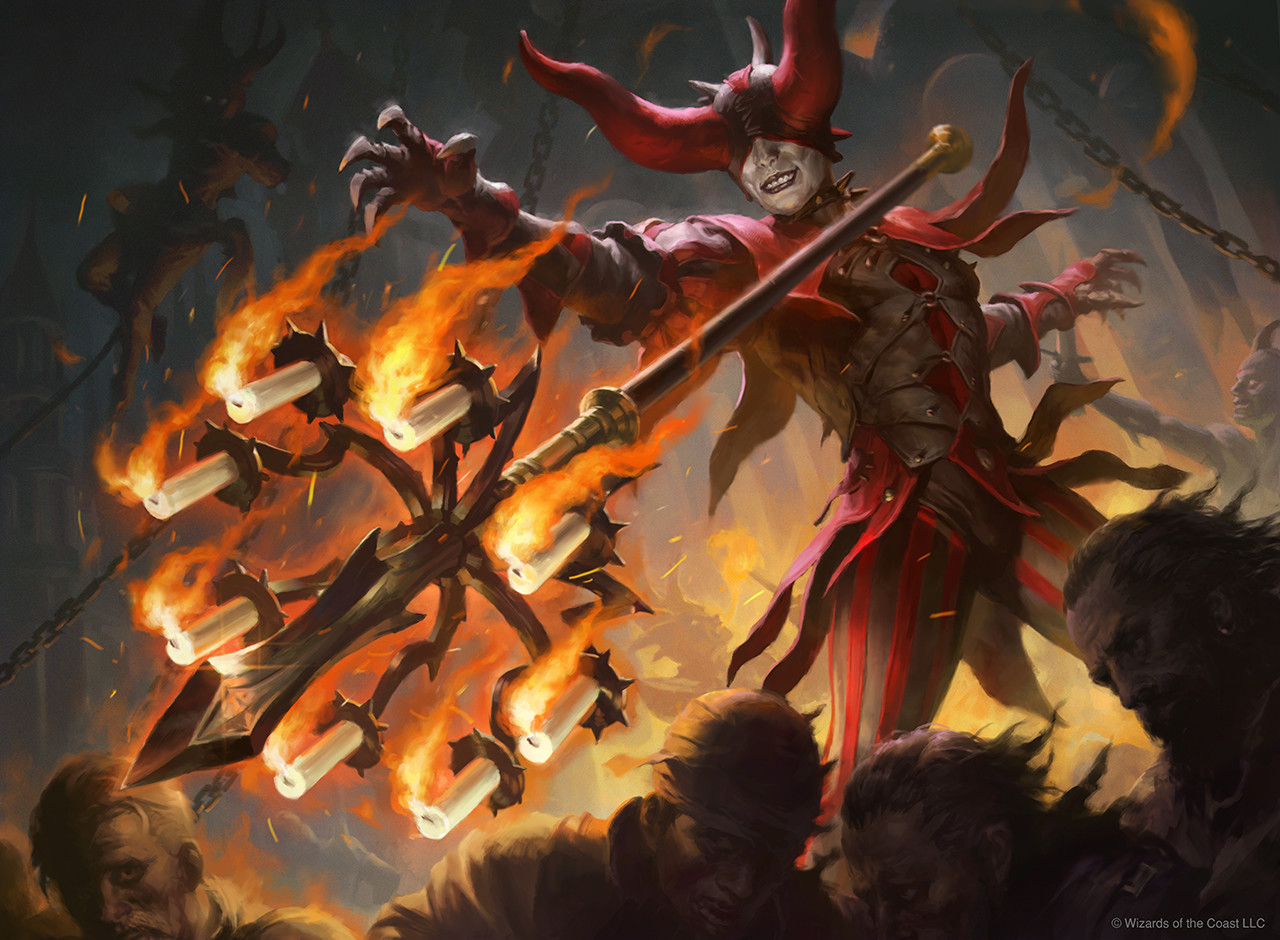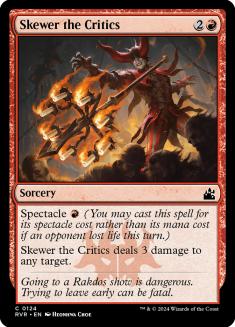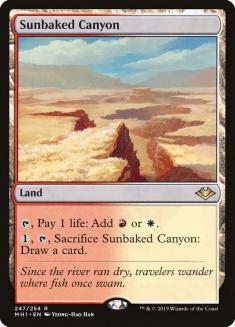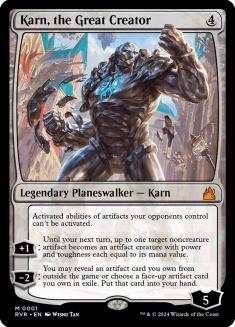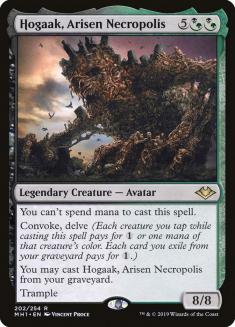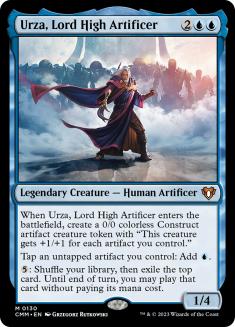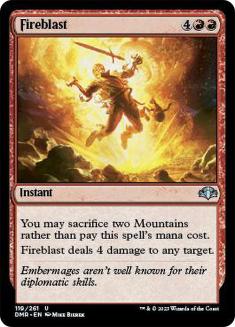Hello and welcome back to this week’s Sullivan’s Satchel. I just got back from Wizards of the Coast (WotC) headquarters to do a little in-office work with Play Design, which was incredibly cool. Do you know that they just hand out foil Invasion rares? It’s true, though unfortunately I ran my Overabundance and Dueling Grounds through the wash. Combing through files with uncut Beta sheets on the walls makes for good inspiration. The vibe and energy was special, especially with World Championship XXVI being broadcast throughout the building.
Anyways, being there gave me renewed enthusiasm to play some Magic myself, so Big Dan Teague has been active in the Legacy and Modern queues after a lengthy hiatus (early returns have been disappointing). And as always, questions to [email protected]. With that, two good questions from Duncan Lawson:
Do you think referring to Modern as a non-rotating format could potentially be misleading to newer players looking to make the leap to Modern? I obviously understand that there is no rotation of sets from Modern, but I think it’s fair to say that the format is susceptible to dramatic shifts in what is and is not viable. Even a few years ago, one could invest in a Modern deck and expect it to be varying degrees of playable for as long as the format exists. I’d argue that we are very far from that reality now.
So, I think it’s worth unpacking the degree to which format stability is desirable, and to what extent the previous iterations of Modern were “stable” compared to the last two years. There is no question that the last few Standard-legal releases, along with Modern Horizons, have injected power into the format at a pace much greater than almost any previous two-year snapshot. This is even more impressive when you consider the card pool has gotten larger over time; this sort of destabilization should be happening less frequently, not more.
I know that I’m speaking from a privileged position as a Burn player – the deck has never been close to actionable and lacks a single key enabler (say, Mox Opal) that’s an outlier on rate that subsidizes the whole thing. There’s a downside to that, which is everything I just said is another way of saying not only is the deck not that strong, but it also lacks a singular card that can let you brute-force your way through more powerful decks.
I’ve lived in a world for years where my deck improves by one of two methods: a new card gets added that replaces an old one (for example Skewer the Critics or Sunbaked Canyon), or metagame fluctuations happen to prop my deck up for a period of time (Karn, the Great Creator creates a renewed interest in Urzatron-based decks, and those are still a very good matchup for Burn). The vast majority of single-deck players operate similarly – something new comes out that’s good for them, or a confluence of random events makes their deck more appealing, even if their deck has remained the same.
The deck improving over time is likely to happen because the bar gets higher (competing with Skewer the Critics is a taller order than whatever card you replaced with Skewer), and even if those fluctuations may prop up a deck for a period of time, that’s less likely to occur since it is competing in a more powerful ecosystem. I think this speaks to Duncan’s point – a “pet deck,” even one that was among the better decks of its time, is unlikely to hold up over a long arc, though there are exceptions.
I think this is why it is important for WotC to adhere to some heuristics about the overall speed of the format, if not its power – the format getting faster is the easiest, most transparent path for someone’s deck to become “invalid.” Maybe it’s harder to compete in a more powerful environment, but it isn’t the same thing as just dying a full turn before you’re used to. Hogaak ran afoul of that, as one example. I think the case for banning something like that is much more powerful than for, say, Urza, Lord High Artificer, even if their ubiquity got to a similar spot.
I’ve also covered enough Modern at this point to be firmly in the camp of knowing your deck being more important than having the best deck in absolute terms (the very best players do both, of course). The games are too hard, and even if your old deck isn’t the best, the delta isn’t usually so vast that you can’t win by being better prepared. I think this does a lot to prevent the erosion of decks in the aggregate, if maybe not at the highest levels.
The short answer to all of this: I still think it’s reasonable to call Modern non-rotating in practice. Some decks fall by the wayside, but many of them get spun into derivatives with many similar cards. Some decks may not be ideal, but are still capable of good results in the hands of skilled pilots. And not every new powerful card is going to spawn something new; many end up subsidizing old strategies, directly or indirectly. Owning one deck is always going to be a risk, but Modern has managed that well above expectations so far, I think.
Do you think Modern will still be a competitive format in 5 years? 3 years even? I’d argue that ban fatigue and fear of bans will eventually cause the format to implode. Furthermore, Horizons sets are an abomination.
I definitely think the format will be around for a long time. The barrier of entry, short range of viable archetypes, and expense of Legacy are orders of magnitude more daunting than Modern and people still play that format with little in the way of formal Organized Play support. Players have shown a high tolerance for playing formats much worse than Modern in terms of stability of format architecture. Modern also gives WotC a path to monetize certain cards that they can’t through Legacy or Pioneer, so they have an incentive to keep the ball rolling as well.
I push back at the notion that Modern Horizons was “an abomination.” Given the enormity of the challenge, I think it went extremely well. WotC didn’t indulge in a bunch of one-cost stuff being the best; maybe Urza isn’t the ideal bet but it actually costs four. Plenty of old archetypes got appealing upgrades that I would argue improve the format – the Horizon lands, Giver of Runes, Eladamri’s Call, Archmage’s Charm, and plenty of others are novel additions at reasonable power levels. Besides Hogaak, I think the worst bet in the file is Arcum’s Astrolabe, and the average Standard-legal set has at least one bet that questionable.
Finally, from Larry:
What’s up with the Red cards?
I’m guessing this means my gravitation to red strategies. It wasn’t always this way. When I first started sinking my teeth into tournament Magic, I gravitated towards blue control decks. Part of that was power level; they were easily the best thing to be doing in most formats. But part of that was wanting a feeling of agency, something I lacked in essentially every other part of my life.
I got turned onto playing red at the Sideboard Team Challenge in Columbus, Ohio. Our team needed an Extended player, and we only had Mono-Red as an option. I volunteered on a lark, and I would impressed by the depth of the games, and my ability to beat seemingly-overwhelming cards with the right blend of aggression and caution. Suddenly, an entirely different way of engaging with the game was open to me.
At root, I really enjoy Magic, and most aggressive red decks produce games where all pieces of the game engine matter. Battlefield presence, life totals, card advantage, fighting over a key permanent – all these things do and don’t matter depending on the shape of the game and the opposing cards in a way that, say, a blue control mirror doesn’t really promise.
As time has gone on I have less energy to commit to testing, and so there’s a “resting on my laurels” part of it – I know that I can play a red deck proficiently with fewer reps than anything else, and so I can lean on that at the expense of grinding out the games.
Lastly, and maybe most importantly, the games are dramatic. Someone goes, and it’s usually pretty quickly, and pretty often the last draw step for either player matters. Even after twenty years, it still gets the blood pumping, and I’m not sure how much that would be the case for any other individual archetype or more common blend of experiences.

